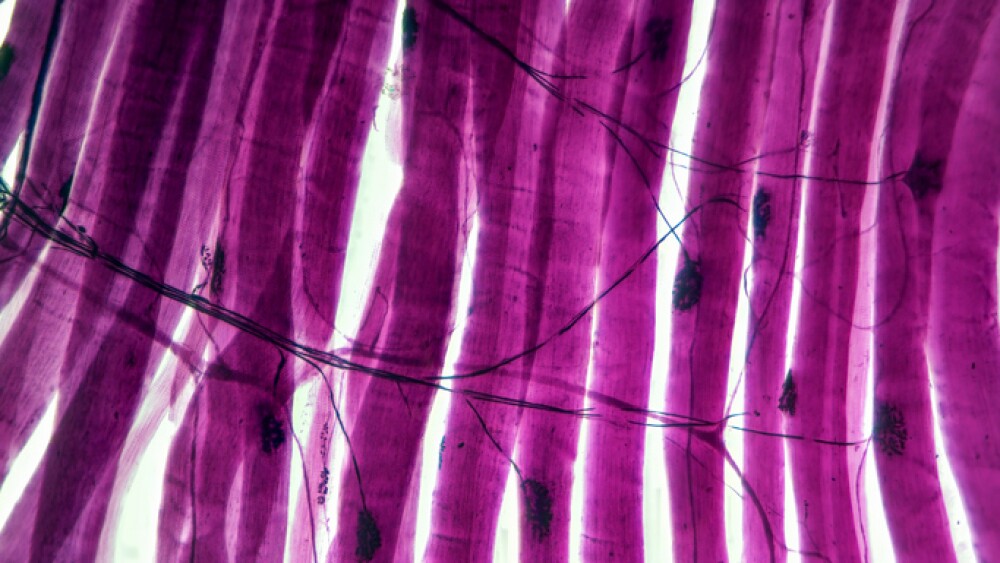Cadrenal Therapeutics, Inc., (Nasdaq: CVKD) today highlighted a groundbreaking presentation at the International Society for Heart & Lung Transplantation (ISHLT) 44th Annual Meeting & Scientific Sessions.
|
Tecarfarin, which recently received Orphan Drug Designation from the FDA for the prevention of thromboembolism and thrombosis in patients with an implanted mechanical circulatory support device, has the potential to improve the time in therapeutic range a factor correlated in the ARIES-HM3 trial with better patient outcomes PONTE VEDRA, Fla., June 3, 2024 /PRNewswire/ -- Cadrenal Therapeutics, Inc., (Nasdaq: CVKD), a biopharmaceutical company developing tecarfarin, a late-stage novel oral and reversible anticoagulant (blood thinner) designed to prevent heart attacks, strokes, and deaths due to blood clots in patients with rare cardiovascular conditions, today highlighted a groundbreaking presentation at the International Society for Heart & Lung Transplantation (ISHLT) 44th Annual Meeting & Scientific Sessions. These new findings from secondary analyses of the ARIES-HM3 trial were released in a presentation titled, "Impact of Vitamin K Antagonist (VKA) Therapy On Outcomes In a Randomized Controlled Trial of Aspirin Removal In Left Ventricular Assist Device (LVAD) Patients - A Pre-Specified Analysis From the Aspirin and Hemocompatibility Events With a Left Ventricular Assist Device in Advanced Heart Failure, or the ARIES-HM3, Randomized Clinical Trial." The ARIES-HM3 trial data demonstrated that lower time in therapeutic range, or TTR, translated directly to excessive bleeding events. The "average" patient in the ARIES-HM3 study had a 30% rate of serious bleeding events even after aspirin was eliminated as part of the antithrombotic regimen, and persistent bleeding was inversely correlated with TTR. The ARIES-HM3 clinical study was sponsored by Abbott (NYSE: ABT), which evaluated a new clinical approach to patient management that included removal of aspirin as part of the antithrombotic regimen warfarin. The data is currently under review by the FDA. Labeling changes related to the antithrombotic regimen have not been approved by the FDA at this time. Dr. Mandeep Mehra, who chaired the ARIES-HM3 study, holds the William Harvey Distinguished Chair in Advanced Cardiovascular Medicine and is Executive Director of the Center for Advanced Heart Disease at Brigham and Women's Hospital, commented, "This comprehensive analysis identifies adequacy of VKA use (as measured by TTR) as a significant risk marker for bleeding events and provides new clinical direction for further mitigation of bleeding to enhance hemocompatibility with the HeartMate 3 LVAD." Mehra continued, "Each incremental improvement of 10% above the median of 56% TTR trends in a significant further reduction in bleeding rate. Tecarfarin could potentially be an important therapy for patients with LVADs who all require chronic anti-coagulation since it does not get affected by drug-drug interactions or changes in kidney function like warfarin and deserves further study." "The ARIES-HM3 trial data underscores the deficiencies of warfarin and the need for a new VKA therapy for patients with LVADs. We believe our drug candidate, the next-generation VKA tecarfarin, with its unique retrometabolic design that provides for more stable anticoagulation than warfarin, is the much-needed replacement therapy. We intend to pursue a pivotal trial evaluating tecarfarin effectiveness for LVAD patients," said Quang Pham, Founder, Chairman and Chief Executive Officer of Cadrenal Therapeutics. "Cadrenal commends Abbott's commitment to LVAD patients in sponsoring this important trial and analyses." On April 9, 2024, Cardenal Therapeutics announced that the United States Food and Drug Administration (FDA) had granted tecarfarin Orphan Drug Designation for the prevention of thromboembolism and thrombosis in patients with an implanted mechanical circulatory support device, which includes the left ventricular assist device (LVAD). The current market-leading direct oral anticoagulants (DOACs), such as Eliquis, are not indicated for patients with LVADs due to a lack of evidence of benefit, while the level of anticoagulation achieved with warfarin was achieved in the target range only 56% of the time in the ARIES-HM3 trial. Patients whose level of anticoagulation was in the therapeutic range > 56% had better outcomes than those with lower levels. This highlights the potential role for investigating new VKA agents in improving clinical outcomes in LVAD patients. VKA anticoagulation is prescribed for the prevention of LVAD-related clotting. However, the only available VKA is warfarin, which was approved for human use in 1954. Tecarfarin has been shown to improve TTR, particularly in patients taking multiple medications, and be more stable in patients with renal dysfunction which is common in LVAD patients. ABOUT CADRENAL THERAPEUTICS, INC. Safe Harbor Statement For more information, please contact: Cadrenal Therapeutics: Investors:
SOURCE Cadrenal Therapeutics, Inc. |
||
Company Codes: NASDAQ-NMS:CVKD, NYSE:ABT |




